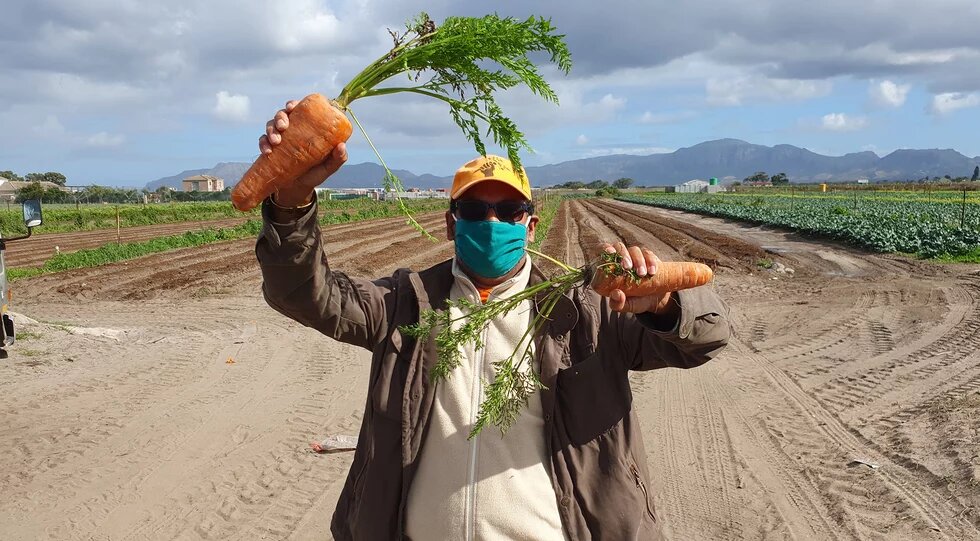What began as a hyperlocal movement to protect the interests of emerging and commercial farmers, farmworkers and informal settlement residents in Cape Town’s Philippi Horticultural Area has become a much bigger campaign.

In recent years, the Philippi Horticultural Area Food and Farming Campaign has been in the news because of its legal challenges to the plans of property developers to convert parts of the Philippi Horticultural Area into housing and commercial development. Together with Stellenbosch University doctoral student Matthew Wingfield, who is doing research on the Philippi Horticultural Area, I recently met the Philippi Horticultural Area Food and Farming Campaign’s founder, Nazeer Sonday, in an empty field next to a primary school in Grassy Park, where he grew up in the 1960s and 1970s. We wanted to know more about his upbringing and whether this had influenced his vocation as an environmental activist and organic farmer.
Born in 1961, Sonday grew up on his grandfather’s rented plot in the Philippi Horticultural Area. The large extended family kept chickens, goats and a cow in the backyard and planted crops such as cabbage and cauliflower. Sonday’s father was a sales rep for Cadbury and later bought a general store in Elsies River. Then came the apartheid forced removals in the late 1960s, followed by the rapid encroachment of new housing projects and “urban sprawl” in what had been a largely agricultural area.
In 1991, Sonday returned to the Philippi Horticultural Area. He bought a smallholding on Schaapkraal Road, which is now his family home and serves as the campaign offices and its peri-urban farming project. Sonday told us he returned to the area because “the place was just in my psyche”. His mother had once told him that his deep attachment to the place was because his umbilical cord was buried there.
Before becoming involved in the campaign, Sonday owned a couple of bakeries, which he later sold and used the money to buy a farmstall. He then began the slow and steady process of becoming a peri-urban farmer. First, he started growing crops in the yard and keeping chickens, much like his family had done decades earlier. Then, in 2006, he received a government grant to establish a greenhouse with irrigation infrastructure, which he used to grow tomatoes on his 1 hectare plot.
But before long, Sonday found himself struggling to make a profit. Even when he was selling a ton of tomatoes a week to Pick n Pay in Plumstead, he still lost money. As he recalled: “It failed because the value chain that small-scale farmers are encouraged to enter actually extracts money from them. If my production costs are R6 per kilo and they give you R6 per kilo, you aren’t making any profit. Another reason [it collapsed] was because the hydroponic system is very resource-intensive, so we have to buy lots of fertiliser and pesticides to keep the system going.”
***********************